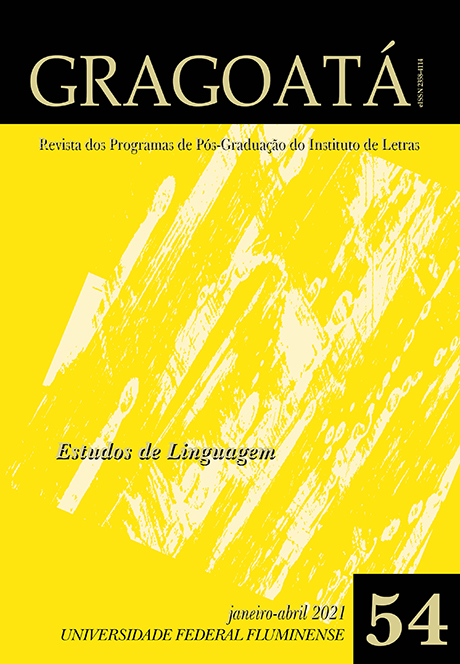Language and Ethnicity among Coloured Students in Cape Town
DOI:
https://doi.org/10.22409/gragoata.v26i54.46355Palavras-chave:
Identity, Belonging, Ethnicity, AfrikaansResumo
This paper raises the issue of the relationship between language and identity. This subject has been present not only in Sociolinguistics, but also in other social sciences in recent decades. The focus here is to describe and present the relationship between the Afrikaans language spoken by university students who are members of the Coloured population and the ethnolinguistic identity perceived by these speakers. The locus is the multicultural and multilingual Cape Town, located in the South African Western Cape province, where European colonization began. To achieve the objective of this article, we briefly present the language in question: its emergence, its history and by whom it is currently spoken. In addition, since we are dealing with a somehow hybrid ethnicity (“coloured”), we also use anthropological theoretical approaches to understand what is perceived as “ethnicity”. With regard to data collection, we use qualitative content analysis. Internet interviews were conducted through the platform known as Zoom. Eight students were interviewed and answered a set of questions about the social role of the varieties of Afrikaans in Cape Town, attitudes concerning language status and linguistic representation of identity and belonging, in which language(s) they feel best represented, among other issues. The results obtained from the interviews brought a broad understanding of the linguistic practices of these Coloured speakers.
Downloads
Downloads
Publicado
Edição
Seção
Licença
AUTORIZAÇÃO
Autores que publicam em Gragoatá concordam com os seguintes termos:
Os autores mantêm os direitos e cedem à revista o direito à primeira publicação, simultaneamente submetido a uma licença Creative Commons Atribuição 4.0 Internacional (CC BY 4.0), que permite o compartilhamento por terceiros com a devida menção ao autor e à primeira publicação pela Gragoatá.
Os autores podem entrar em acordos contratuais adicionais e separados para a distribuição não exclusiva da versão publicada da obra (por exemplo, postá-la em um repositório institucional ou publicá-la em um livro), com o reconhecimento de sua publicação inicial na Gragoatá.
A Gragoatá utiliza uma Licença Creative Commons - Atribuição CC BY 4.0 Internacional.











